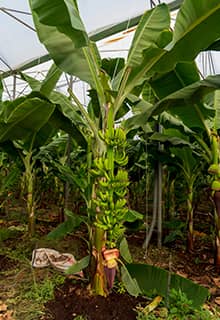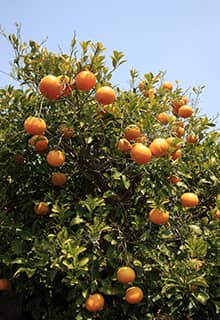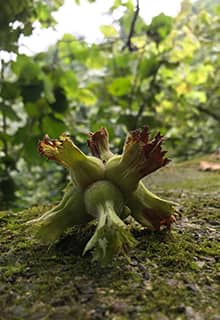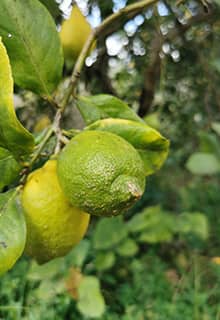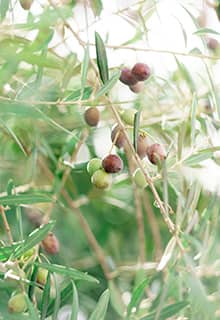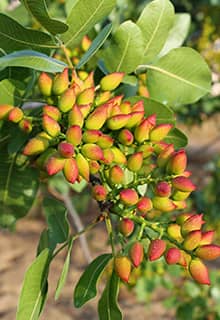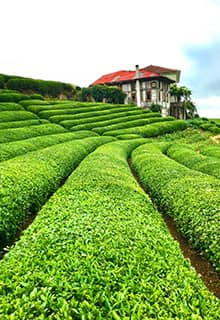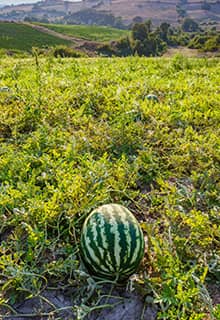

sustainable gastronomy
Byopting forlocally-sourcedfoodsduringyourtriptoTürkiye, you cansupporttheprotectionofbiodiversity and regionalcultureandidentity,and the transferof these values tofuturegenerations.
Bringing together small-scale producers and consumers through sustainable and ethical gastronomy contributes to sustainable regional development. Supporting local small businesses and artisans also protects the right of all individuals to clean and fair access to food. Each region in Türkiye has a variety of age-old cuisines and traditional agriculture and food practices for you to taste and experience while consuming consciously to support the local economy!
Discover Local Delicacies
Food is a direct route to experiencing a country’s past, present and future. Turkish cuisine is astonishingly rich and diverse, just like the country itself, ranging from local cheese varieties and wild Aegean herbs to artisanal breakfast products, street food, soups, olive oils, mezes, world-renowned kebabs, and desserts galore for those visitors with a sweet tooth. In the footsteps of ancient food routes that offer different flavors in every region of Türkiye, you can discover endless, centuries-old original dishes and culinary traditions that have been transferred through families and across the generations.
Support local and small-scale producers by exploring Türkiye’s rich culinary heritage!
For more information: https://gogastroturkiye.com/
Go On a Mushroom Hunt
Türkiye is a true paradise for wild mushrooms. Forest mushrooms begin growing abundantly in October – one of the best times to grab a basket and go mushroom hunting!
How many kinds of mushrooms do you think grow in Türkiye? Türkiye, in fact, is home to around 12,000 mushrooms, ranging from the chanterelle to the morel. Among the 200 edible species here, at least 15 varieties of mushrooms are in high demand worldwide, and economically valuable.
Among the wild mushroom species grown in Türkiye, chanterelles and porcini are gourmet favorites. The autumn chanterelle grows around the Black Sea region and in the forests of the Marmara Region close to the Black Sea; porcini grows in almost every region; and the cedar mushroom is abundant in the cedar forests in the Taurus area.
Another global favorite, the precious morel mushroom, is not an autumn species, but appears abundantly in almost every village market in the spring. If you visit Kastamonu in the fall, you can enjoy the pleasure of cooking the giant milk cap mushrooms that fill the stalls in the markets. If you have an interest in distinctive regional flavors, Türkiye offers numerous routes to explore!
Traditional and Ecological Markets
Traditional open and covered markets can be found in every city in Türkiye. At these markets, you can taste and purchase fresh or dried fruits and vegetables, local cheese, and yogurt, and meet the hospitable vendors from around the area.
Here are just some of the hundreds of local markets across the country.
Ayvalık Market, Balıkesir
The market takes place every Thursday in Ayvalık, an important seaside town, and features a unique variety of Aegean vegetables and fruits. By shopping here, you can support traditional and local producers and eat like a local at the same time – a green traveler’s dream!
Sığacık Market, İzmir
Sığacık, a small town of Seferihisar on the Aegean Sea coast, was Türkiye’s first Slow City (Cittaslow). The Sığacık Local Producers’ Market, held every Sunday, has gained a nationwide reputation for upholding its local values, and despite its popular reputation, the market retains its authenticity. Among the vendors selling fruits and vegetables, jams, and handcrafted products, you’ll come across many women vendors and products created by the efforts of women artisans.
Cumalıkızık Market, Bursa
Cumalıkızık, once the capital of the Ottoman Empire and a UNESCO World Heritage Site, is open every day of the week in the village square, featuring stalls set up by women who produce traditionally. Take a stroll among the stalls for an authentic Turkish experience!
Tire Market, İzmir
The Tire district, one of the most important traditional agricultural production centers in Türkiye, is famous for its marketplace. Handiwork, olive oils, vegetable and fruit varieties, and kitchen utensils can be found here. If you visit the market, which takes place on Tuesday every week, be sure to sample the famous Tire meatballs and legendary black mulberry curd dessert. Just delicious!
Ecological Markets
In service since 2006, organic markets in Türkiye contribute to environmental and cultural sustainability and provide thousands of people with access to organic food. The markets operating within the scope of the Wheat Association's “100% Ecological Markets” project are in Bakırköy and Şişli in Istanbul, Izmit, Kartal, and Kocasinan in Kayseri.
Earth Market
The international network of Earth Markets, launched by the Slow Food Biodiversity Foundation to provide healthier access to good, clean, and fair food, includes four markets in Türkiye: Tarsus, Şile, Gökçeada, and Foça. Earth Markets in Türkiye are helping to combat the impact of climate change and protect heirloom seeds, promote organic agriculture, and boost the gastronomic supply chain.
Geographically - Marked Products and Slow Food
Türkiye has hundreds of products registered with protected geographical markings and many protected traditional products. Gastronomic products, which are an important part of Turkish traditional culture, are predominantly included in geographically-marked food listings. The Malatya apricot, the Aydin fig and chestnut, Gaziantep baklava, Milas olive oil, Bayramiç nectarine (Bayramiç beyazı), Taşköprü garlic, and many more are registered with the European Union. Don’t leave Türkiye without discovering a few of these wonderful products!
The Slow Food movement, which is active in Türkiye, not only encourages people to take the time to prepare and eat food entirely from local sources, but also aims to protect cultures and heritages that are gradually being subsumed by a mindset of rapid consumption. Through our food choices, we can collectively influence how food is grown, produced, and distributed and, as a result, together, we can change the world!
The global “Ark of Taste” project, run by the Slow Food Biodiversity Foundation, travels the world collecting small-scale quality products originating from cultures, history, and traditions across the entire planet to support small producers and promote their products. The list includes 76 local and regional products from Türkiye.
For more information: https://gogastroturkiye.com/tr/slow-food

